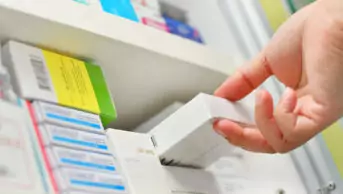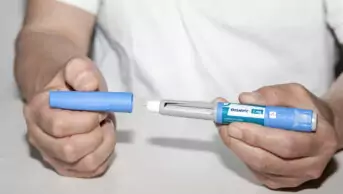
Shutterstock.com
Community pharmacists should be able to dispense alternative formulations of antibiotics, or substitute them, if the prescribed form is unavailable, in light of ongoing supply issues, the chair of the Royal College of General Practitioners (RCGP) has said.
Speaking to the BBC’s Today programme on 9 December 2022, Kamila Hawthorne said that she had spoken to Chris Whitty, chief medical officer for England, and Susan Hopkins, medical director of the UK Health Security Agency, “the day before yesterday” about the issue.
“Not only do pharmacists need to be able to dispense a different formulation of that antibiotic, but if that antibiotic’s just not available, there are other alternatives that are just as good,” Hawthorne said.
“It’s been discussed — whether or not it will happen, I don’t know,” she added.
In England, community pharmacists can only dispense a medicine that is different to what was prescribed, without going back to the prescriber, if the government issues a time-limited serious shortage protocol (SSP) for a specific medicine.
Under a SSP, community pharmacists can supply a reduced quantity, a therapeutic equivalent, a generic equivalent or an alternative formulation of the drug prescribed. However, hospital pharmacists — and community pharmacists in Scotland — can routinely alter prescriptions where needed.
Hawthorne’s comments come after community pharmacists raised concerns over worsening supply problems for antibiotic oral suspensions for children, including penicillin, amoxicillin and azithromycin, with the Specialist Pharmacy Service advising clinicians to encourage children to swallow oral solid dose forms of antibiotics where possible.
The Department of Health and Social Care (DHSC) has not yet responded to requests for comment on whether SSPs are being considered for antibiotics experiencing supply problems.
However, interim commissioning guidance from the government, issued on 9 December 2022, advises clinicians to prescribe “amoxicillin, macrolides and cefalexin … in decreasing preference” if phenoxymethylpenicillin is unavailable.
In a letter to pharmacists working in hospitals and the community, sent on 8 December 2022, David Webb, chief pharmaceutical officer for England, said antibiotic supplies “have seen a surge in demand and may be in limited supply at certain wholesalers and pharmacies, particularly phenoxymethylpenicillin presentations”.
The letter added that supplies of antibiotics “are readily available” and that “deliveries into wholesalers and pharmacies are being expedited and are expected in the coming days”.
This was echoed by the Pharmaceutical Services Negotiating Committee (PSNC), which said in a statement on 9 December 2022 that the supply issues were expected to “improve next week”.
But the PSNC noted that the supply issues had resulted in a “significant” increase in wholesale prices for antibiotics, leading negotiators to apply for “a record number of price concessions this month”.
“As the majority of wholesalers are showing as out of stock on most lines, we are also hearing that some suppliers have significantly put up their prices this week for any oral antibiotics they do have in stock,” the statement said.
Janet Morrison, chief executive of the PSNC, added: “The accounts we are getting from contractors about medicines price rises are just not acceptable and this goes far beyond the antibiotic crisis. We expect to see a record number of concessions granted this month, which is yet more proof that this system is simply not coping with the current medicines market.
“Government and the NHS have squeezed pharmacies dry financially, and now they want us to pay their NHS drugs bill as well; it just cannot carry on.”
In September 2022, the government granted a record number of price concessions for 159 products, potentially costing the NHS an additional £32m.
- For related information, visit: Everything you need to know about group A streptococcus infections
You may also be interested in

Government advises chief pharmacists to coordinate aid between trusts amid radioisotope shortage

Mandatory ‘eight-week buffer stock’ requirement not met by medicine suppliers, reveals audit
